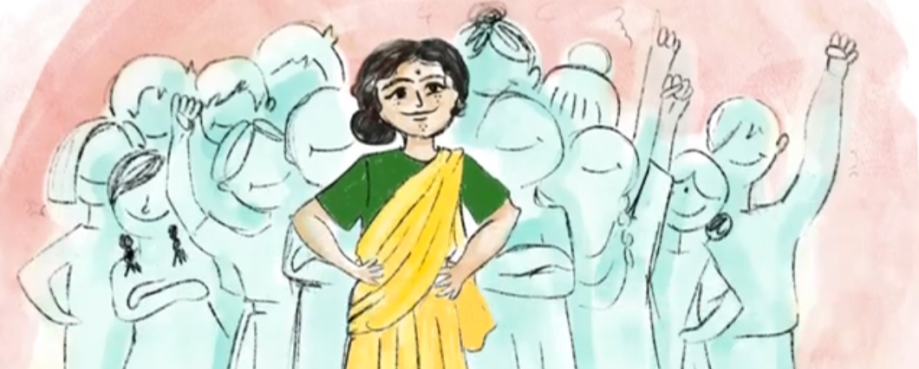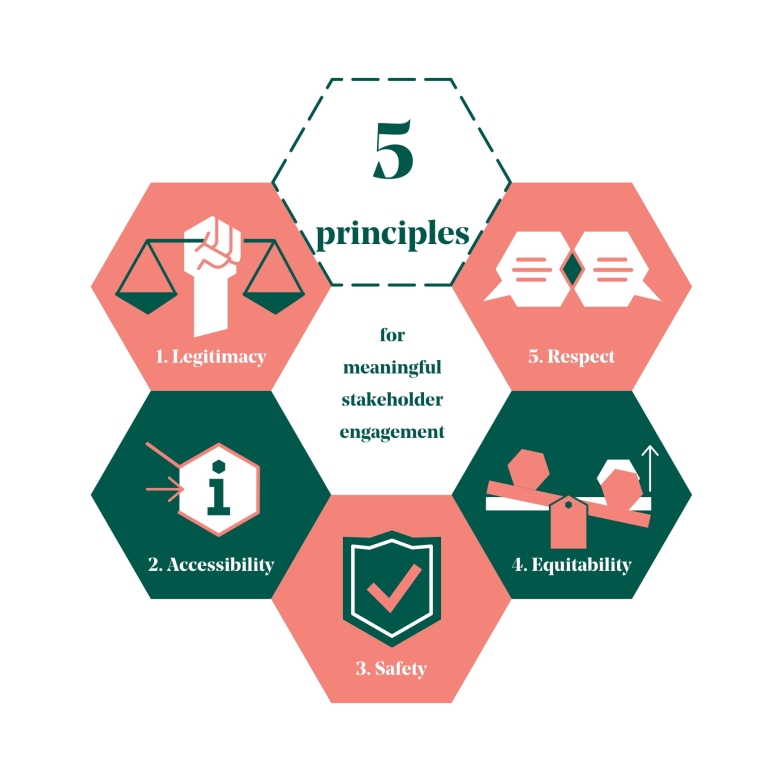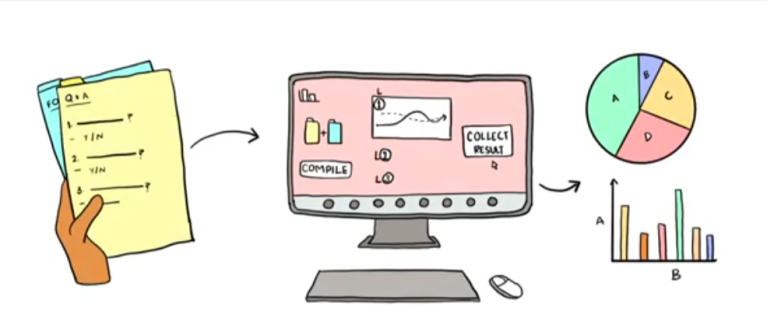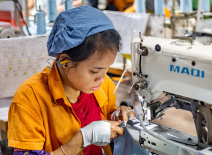
STITCH (Sustainable Textile Initiative: Together for Change) is a global partnership funded by the Dutch Ministry of Foreign Affairs and led by a consortium of six organisations: Fair Wear Foundation, Mondiaal-FNV, CNV Internationaal, CDI (Centre for Development and Integration) Vietnam, CIVIDEP India, and ETI.
Together, we share a common vision: a global textile and garment industry that contributes to an equal and just society by respecting human rights in the world of work.
What has ETI achieved through STITCH?
Over the past four years, ETI has worked collaboratively with consortium partners to advance this shared vision, focusing on two critical processes for improving human rights in global supply chains: human rights due diligence (HRDD) and meaningful stakeholder engagement (MSE).
Through STITCH, we have worked to address evolving risks for workers in apparel supply chains and provided companies with practical tools and frameworks to embed responsible business practices.
As a member of the STITCH Partnership, we have had an opportunity to focus on collaborative efforts with other multistakeholder initiatives (MSIs), taking a leading role in several key initiatives, including the MSI Working Group on Purchasing Practices, the STITCH Gender Working Group, the Social Dialogue Working Group, and The Industry We Want (TIWW).
We have strengthened frameworks, contributed to advocacy and lobbying, and expanded our work on gender-responsive human rights due diligence (GRHRDD) and responsible purchasing practices. Our tripartite membership has joined us along this journey via consultations, working groups, and both in-person and online forums.
Meaningful stakeholder engagement
Meaningful stakeholder engagement is a cornerstone of effective HRDD and is becoming even more critical under emerging legislative frameworks such as the EU Corporate Sustainability Due Diligence Directive (CSDDD).
Earlier this year, ETI published a consulted position on MSE and, through STITCH, co-developed the meaningful stakeholder engagement framework. As a tripartite organisation, ETI has long exemplified MSE in practice, this new framework consolidates those learnings and offers practical guidance for companies seeking to embed engagement within HRDD processes.

Designed for use across sectors, the framework is also accompanied by technical guidance documents providing a practical toolkit to help value chain stakeholders implement meaningful engagement, the first of which, co-developed by STITCH, focuses on the apparel and textiles industry. In 2026, technical guidance for food supply chains is set to follow.
Freedom of association and social dialogue
With worker representation increasingly under pressure in global supply chains, STITCH has enabled ETI to renew and expand our work on freedom of association (FoA) and social dialogue.
To better support our members, ETI has developed a Freedom of Association toolkit to provide practical guidance and tools for brands to progress FoA in supply chains. Developed through member consultations and workshops, the sector-agnostic toolkit will be released later this year.
In Bangladesh, ETI has reached around 3,800 workers through 240 training and learning events, and we have produced a social dialogue handbook for brands, based on lessons from our programmes in India and Bangladesh which have been running for 10 years.
In India, ETI has also worked with partners to revive the Tiruppur Stakeholder Forum (TSF): a multi-stakeholder structure (MSS) that brings together local actors to drive shared goals and enable industry change through dialogue and collective action.
Gender-responsive human rights due diligence
Gender equality is an enabler of workers’ rights, yet women and gender-diverse individuals continue to face systemic discrimination in supply chains.
ETI has strengthened its work on gender-responsive human rights due diligence (GRHRDD) to help member companies identify and address gender-based risks more effectively.
We supported members to improve their understanding of gender-disaggregated supply chain data, launching joint guidance with BSR, Fair Wear Foundation, Dutch Agreement on Sustainable Garment and Textile (AGT), the German Partnership for Sustainable Textiles (PST), and Sedex.
This guidance outlines a clear pathway for companies to collect, analyse, and act on gender data, an essential step towards understanding and preventing gender-based risks.

In partnership with Fair Wear Foundation, ETI has also developed GRHRDD learning modules, which will be launched later this year to support continuous improvement among member companies.
ETI also established the GRACE (Gender Responsive Action Community), part-funded by STITCH, a peer-learning network of eight leading brands developing GRHRDD strategies to address gender-based violence and harassment (GBVH) in their supply chains. Through practical sessions and shared learning, the GRACE community is demonstrating the importance of proactive, prevention-led approaches to tackling GBVH.
Purchasing practices and The Industry We Want
Together with Fair Wear Foundation and Cascale, ETI co-founded The Industry We Want (TIWW), a multi-stakeholder initiative designed to accelerate positive change and drive progress industry-wide progress.
TIWW tracks progress annually through dashboards that measure social, commercial, and environmental performance, including living wages, purchasing practices, and greenhouse gas emissions. ETI has encouraged both brands and suppliers to contribute to TIWW’s Better Buying assessments, ensuring purchasing practices data reflects a range of perspectives.
Responsible purchasing practices are increasingly seen as crucial for a fair and sustainable textile industry. Regulations such as the OECD Due Diligence Guidance, the German Supply Chain Act, and the EU Corporate Sustainability Due Diligence Directive all emphasise the need for companies to review and improve their own practices to ensure they do not contribute to adverse working conditions or wage issues.
— STITCH Story of Change

The 5 principles of the Common Framework for Responsible Purchasing Practices in Manufacturing Industries (CFRPP)
Recognising the central role of purchasing practices in realising human rights at work, ETI has been a leading partner in the MSI Working Group on Purchasing Practices since its inception.
We co-developed the Common Framework on Responsible Purchasing Practices (CFRPP) and supported member brands through the Learning and Implementation Community (LIC), a group of companies committed to applying the CFRPP’s five overarching principles through peer learning and shared implementation.
Through STITCH collaboration, we’ve codeveloped valuable resources to support company progress including a Responsible Purchasing Practices Resource Hub and a Purchasing Practices HRDD Framework, which will be explored further in our forthcoming blog series.
Advocacy and crisis response
ETI has contributed to significant advocacy and lobbying efforts alongside STITCH partners, including joint campaigns for effective mHREDD legislation in both the EU and UK, and advocacy around minimum wage setting in Bangladesh.
We have produced guidance for members on implementing mHRDD legislation and are adapting this for production-country contexts through new case studies that explore how global legislation translates at local level.
Following the military coup in Myanmar in 2021, ETI commissioned an independent study on the prospects for responsible business conduct in the post-coup garment sector. Since then, we have continued to support members through enhanced HRDD (e-HRDD) in conflict-affected and high-risk areas.
We are now developing guidance on responsible disengagement, linking our crisis response work with our broader focus on responsible purchasing practices.
STITCH’s final year
As STITCH closes out its final phase, ETI is focused on ensuring its legacy endures beyond the programme.
Follow our blog to explore the lessons learned, tools developed, and future commitments that will continue to shape responsible business conduct in garment supply chains beyond 2025.
Gender disaggregated data: guidance for suppliers

